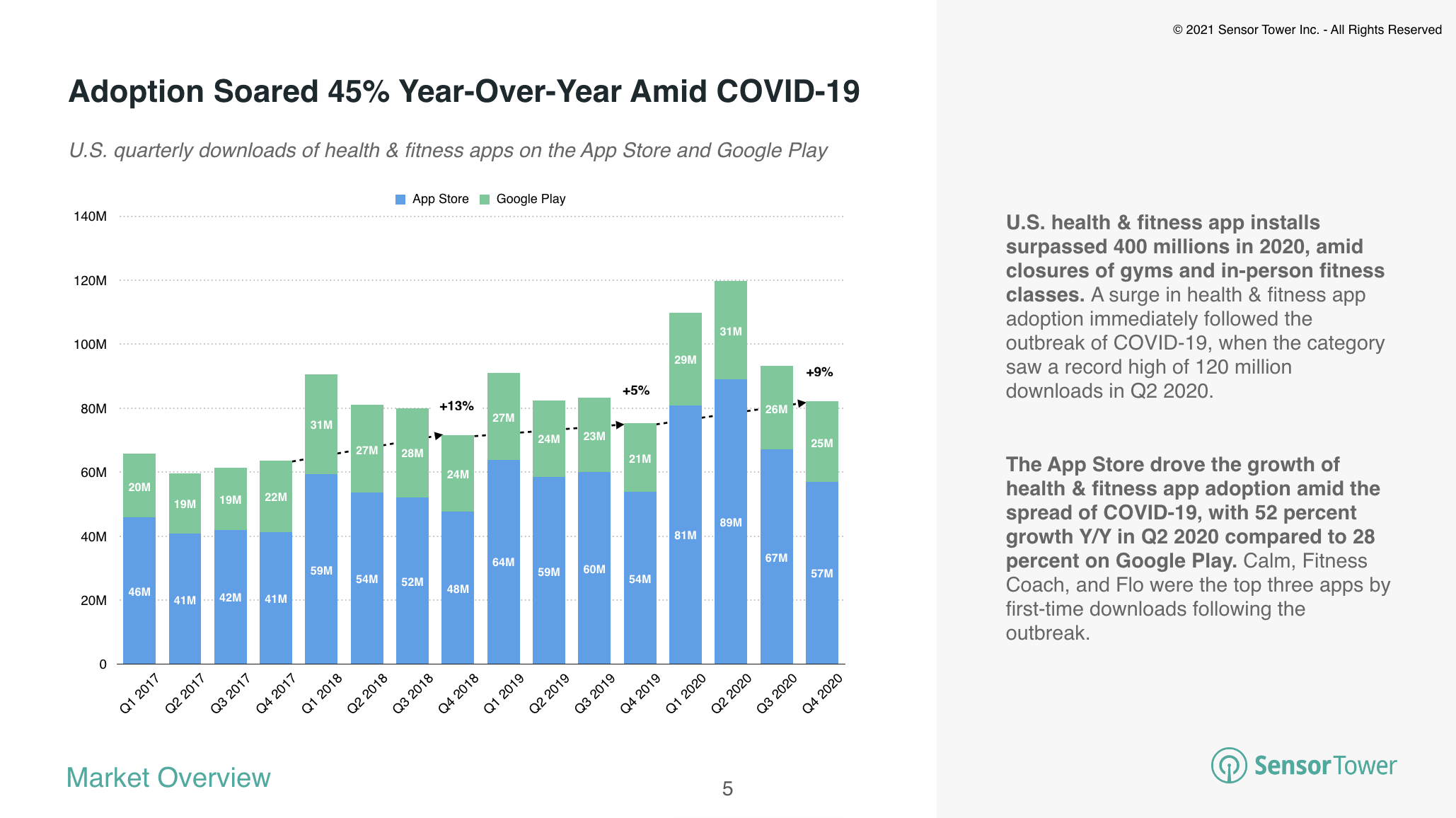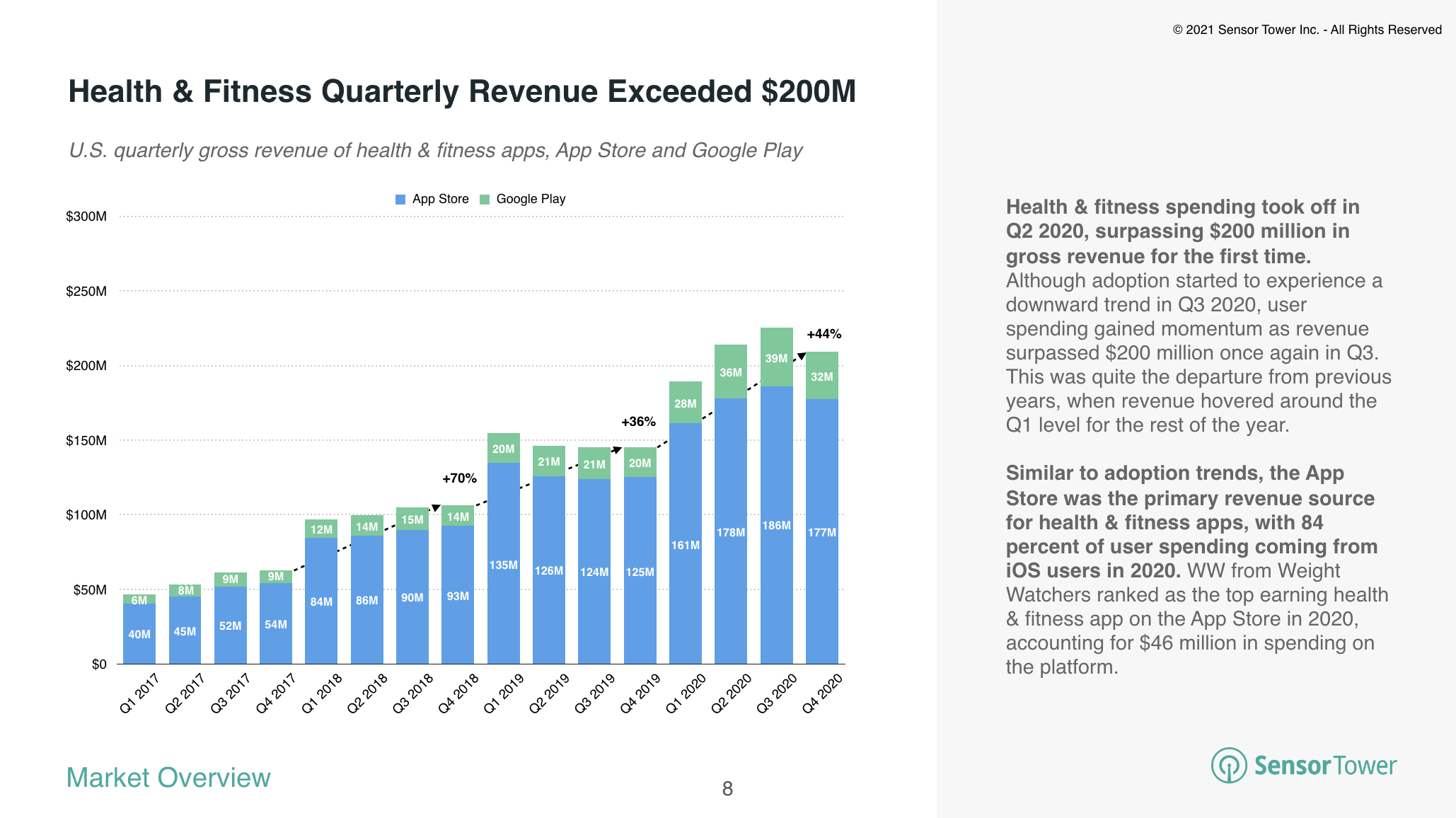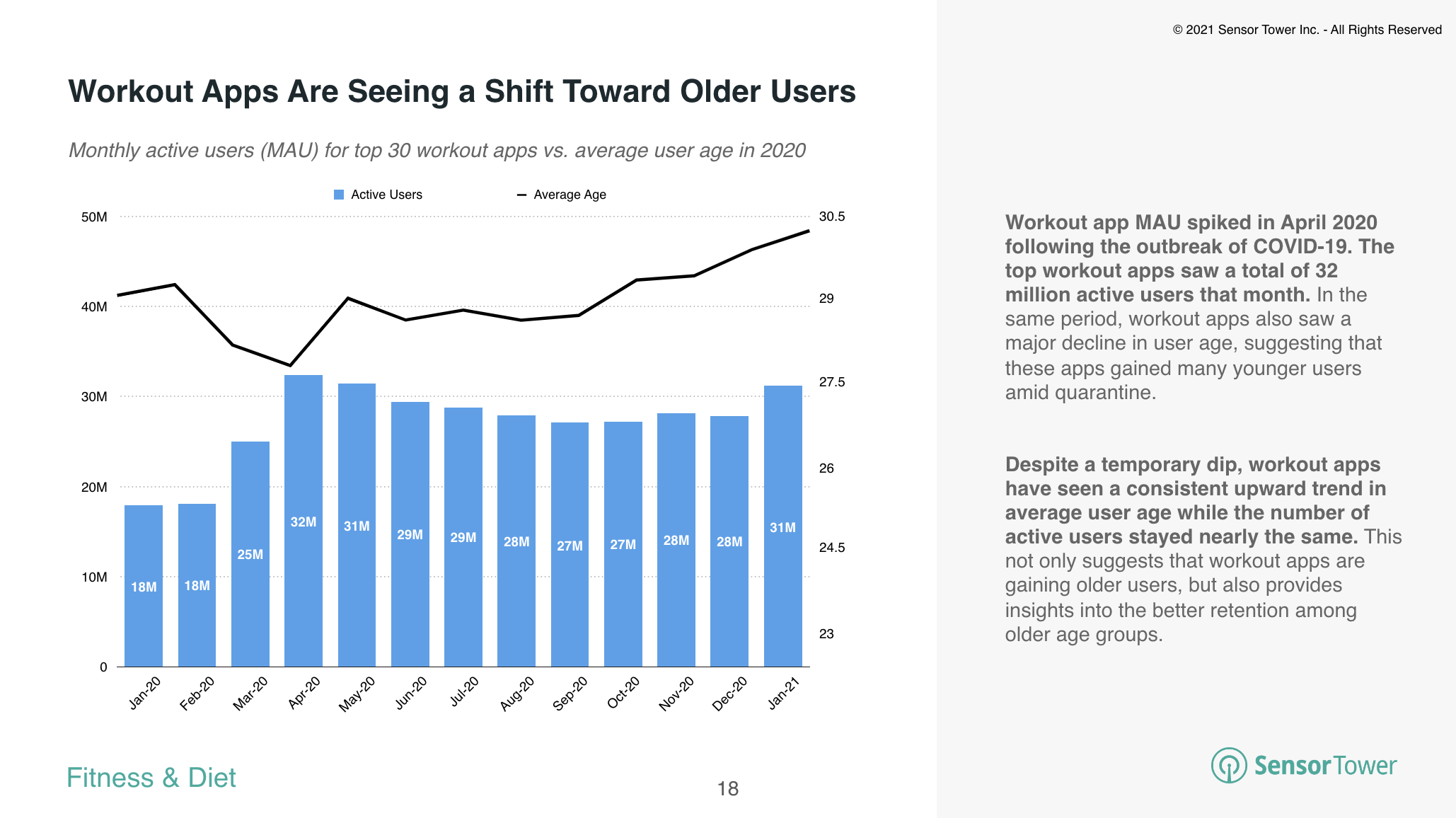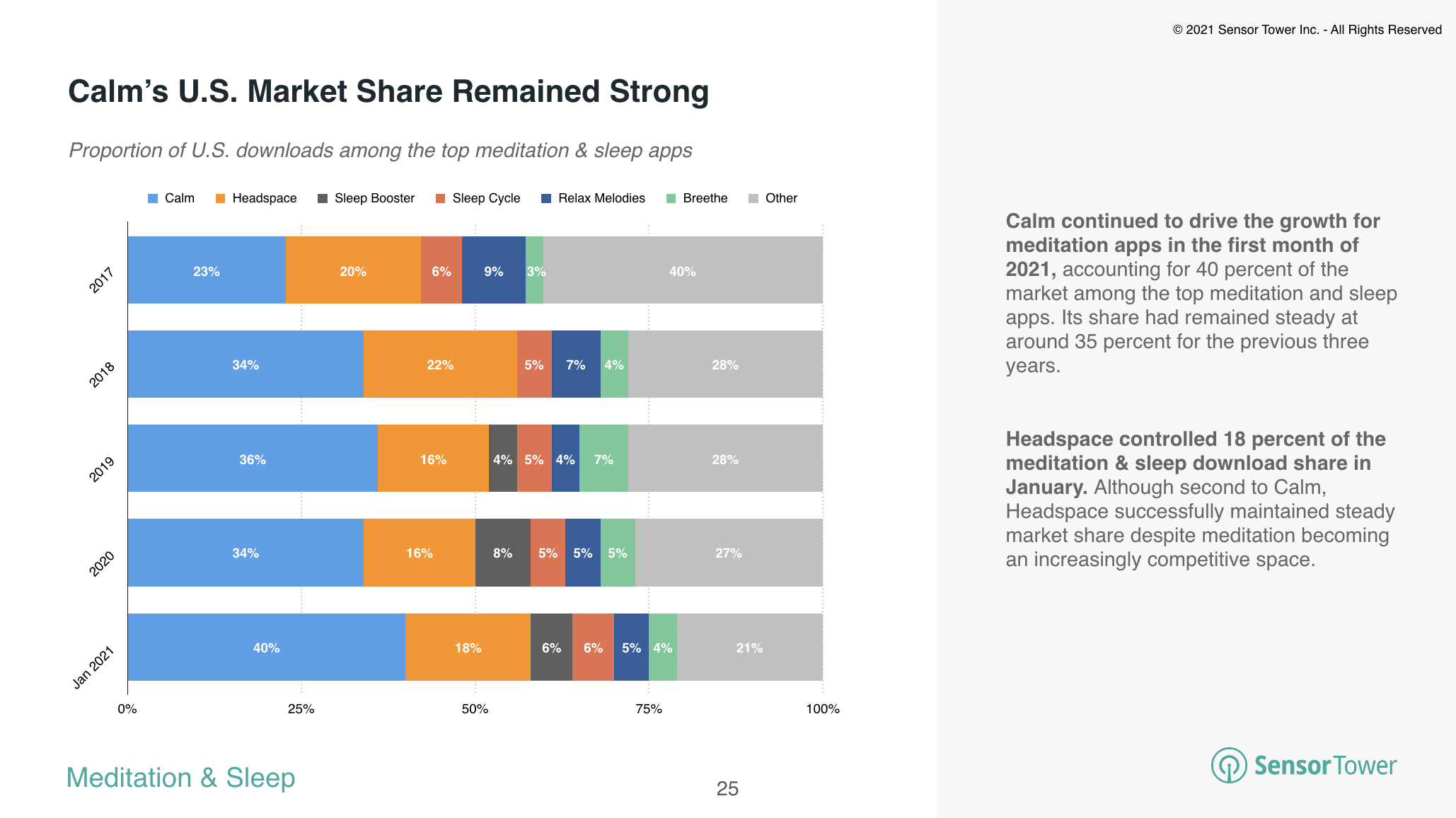
Just as COVID-19 has affected dating apps, so has it shifted the way consumers use health & fitness apps. The average user age of the top workout apps in the United States climbed month-over-month in the latter half of 2020. Sensor Tower’s latest report on the State of Health & Fitness Apps, available now, investigates this evolution in how consumers are approaching the category and reveals insights into a record-setting year.
U.S. Health & Fitness Apps Hit Record Installs and Revenue
As in-person gyms in the U.S. shuttered due to COVID-19, health & fitness apps saw a surge in first-time installs. Downloads peaked in Q2 2020 at 120 million, which was the most the category had ever seen in a single quarter. The majority of new installs came from the U.S. App Store, where downloads grew 52 percent year-over-year.
Across both marketplaces, U.S. health & fitness apps saw 405 million installs in 2020, up 22 percent from 332 million in 2019.

Gross revenue also reached new highs in 2020, first setting a new record of $214 million in Q2 2020, and then surpassing that in the next quarter with $225 million. U.S. consumer spending in the category hit $838 million over the course of the year, up 42 percent Y/Y from $592 million.

Older Users Are Taking Workout Apps for a Spin
The top 30 workout apps in the U.S. saw their monthly active users peak in April, reaching a record 32 million. Although the cohort’s MAUs leveled off in the following months, the average age of their users continued to climb. In January, the top workout apps’ MAUs spiked again, reaching 31 million.

The consistent MAU along with the sustained trend toward older users shows that the top workout apps are finding better retention among this demographic.
Calm Maintains Its Lead in the Meditation App Space
Mental wellness app installs surged toward the beginning of the COVID-19 pandemic. Calm captured the majority market share among the top U.S. meditation apps in 2018 and has continued to lead the space.

In 2020, Calm saw 34 percent of meditation and sleep app downloads, followed by Headspace with 16 percent. In the first month of 2021, Calm widened its lead with 40 percent of downloads in the mental wellness category on U.S. app stores.
The mental wellness space has become increasingly competitive over the past year. For more analysis on that category, as well as other health & fitness apps, including key insights on the latest advertising and demographics trends, download the complete report in PDF form below:

